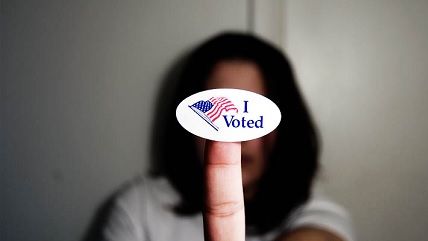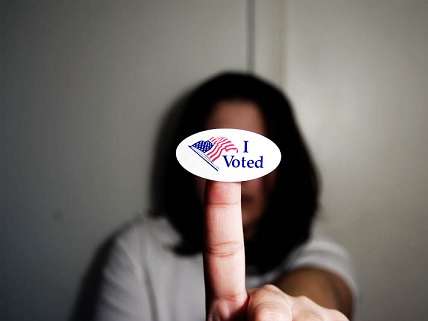Virginia Gov. Restores Voting Rights for All Ex-Felons, Will Continue on Monthly Basis
As well as the ability to run for office, serve on a jury, and act as a notary public.


By proclamation, Virginia Gov. Terry McAuliffe (D) has restored the voting rights of about 200,000 ex-felons in the state. The proclamation covers any Virginian convicted of a felony who has served their sentence and is no longer under state supervision.
Virginia law permits the governor to restore the rights of convicted felons at his discretion, and the previous governor, Bob McDonnell (R)—n.b. now a convicted felon—had also worked to simplify the restoration of the right to vote for ex-felons, as the Washington Post notes.
The governor's office says McAuliffe intends to issue monthly orders restoring the rights of newly released felons. The proclamation also applies to the right to run for office, serve on a jury, and act as a notary public.
Only two states, Vermont and Maine, permit felons to vote even when they are in prison, according to the National Conference of State Legislatures. In Iowa, felons permanently lose their right to vote, while Virginia, Kentucky, and Florida offer restoration of voting rights by executive order.
Other states range from permitting only some ex-felons to vote to extending to all ex-felons, even those still on probation, the right to vote.
A 2014 Reason-Rupe poll found 73 percent of Americans in favor of restoring voting rights for non-violent drug offenders.
Sen. Rand Paul (R-Ky.) introduced a bill last February to protect the voting rights of ex-felons on a federal level but the bill has languished in the Republican-controlled Senate. Outgoing Kentucky Gov. Steve Bashear (D) restored the voting rights of most ex-felons just before leaving office last year, but incoming Republican Gov. Matt Bevin reversed the decision after taking office. He had said on the campaign trail he supported more leniency for ex-felons but insisted it be done through the state legislature.


Show Comments (40)